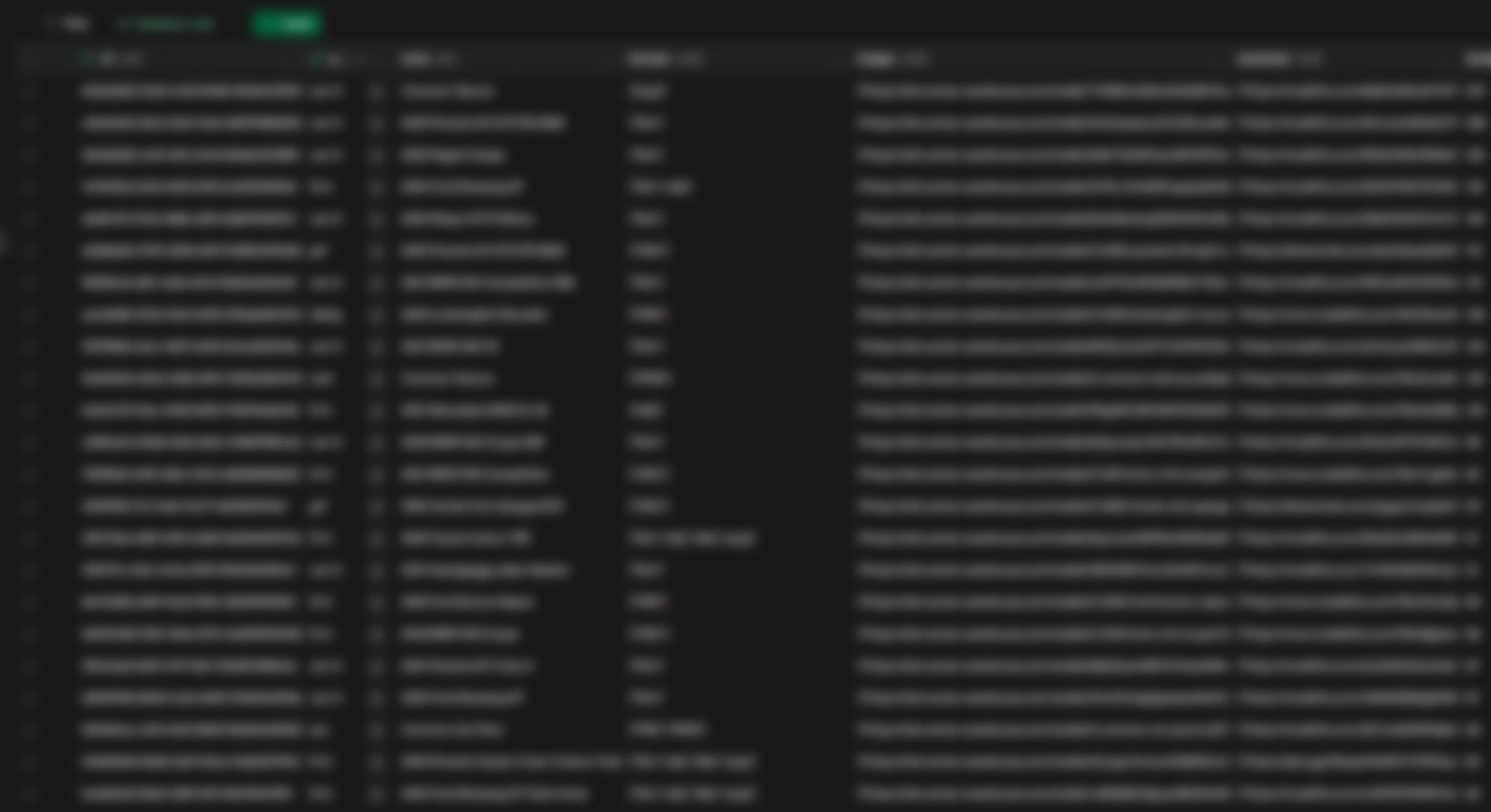Seeding DB using Drizzle ORM
Since their package still not available
Currently I'm updating one of my project to a new database, with new feature and changed database structure.
Because of this, I need to migrate all data from the old database to the new database.
Because of this, I need to migrate all data from the old database to the new database.
and you guessed it, their
drizzle-seed still not available.
Preview
So I need to write my own script to seed the database, and the script must:
- Easy to add new tables to seed
- Easy to add new data
- Flexibility to seed a single table or the whole table
Since this gonna be a short article, I'll only post the code and explaining it on the code itself.
(I'll assume you already have the client configured and ready to use)
(I'll assume you already have the client configured and ready to use)
In this project I'm using NextJS, so I'll make the script inside the router handler to make it easier for me.
WARNING
Make sure to actually secure the endpoint so it can't be accessed on prod
For me, I'm securing it via middleware to return 404 if it's on prod
/src/app/api/dev/seed/[type]/route.tsimport { PgTableWithColumns } from "drizle-orm/pg-core";
import { NextResponse } from "next/server";
import type { NextRequest } from "next/server";
import { tableAData, tableBData, tableCData } from "./data"; // All your data that need to be inserted
import { db } from "~/server/db";
import { tableAModel, tableBModel, tableCModel } from "~/server/db/models"; // Database table model
import { env } from "~/env";
type TableName = "tableA" | "tableB" | "tableC"
type TableWithColumns = pgTableWithColumns<{
dialect: "pg";
columns: {};
schema: any;
name: any
}>
// Create a map for the table model and data
// I can easily add new table here
const TableMap: Record<TableName, TableWithColumns> = {
tableA: tableAModel,
tableB: tableBModel,
tableC: tableCModel
}
const DataMap: Record<TableName, object[]> = {
tableA: tableAData,
tableB: tableBData,
tableC: tableCData
}
export async function GET(
request: NextRequest,
{ params: { type } }: { params: { type: string } }
) {
try {
// Basic guard to only allow this endpoint on dev
if(env.NODE_ENV !== "development") {
return new NextResponse(null, {
status: 404
});
}
// Check if type is valid
if(!Object.keys(DataMap).includes(type) && type !== "all") {
return NextResponse.json(
{
success: false,
message: `Invalid ${type}`,
available: Object.keys(DataMap)
},
{
status: 400
}
);
}
// Add "all" to allow bulk seed
const parsedType = type as "all" || TableName;
// Will be used to fill table with data
const force = new URL(request.nextUrl).searchParams.get("force");
const isForced = ["true", "1", "t"].includes(
force?.toLowerCase() ?? ""
);
const updated: string[] = [];
const failed: { key: TableName; reason: string }[] = [];
if(parsedType === "all") {
await db.transaction(async (t) => {
for (const key in DataMap) {
// If you want to stop when there are failed seed
// You can uncomment this
// if(failed.length) {
// t.rollback();
// break;
// }
const currentTable = TableMap[key as TableName];
const currentData = DataMap[key as TableName];
if(!currentData.length) {
failed.push({
key: key as TableName,
reason: `${key} data is empty. Skipping...`
});
continue;
}
// Check if the table already have data
// If it's has, reject the request
// If the user include search params 'force=true'
// Then remove all the data to be filled with new data
const isFilled = await t.select().from(currentTable).limit(1).execute();
if(isFilled.length) {
if(!isForced) {
failed.push({
key: key as TableName,
reason: `${key} has data. Use \`force=true\` to fill it with new data.`
});
continue;
}
await t.delete(currentTable);
}
console.log(`[dev.seed.${key}] Inserting ${currentData.length} rows.`);
await t.insert(currentTable).values(currentData).execute();
updated.push(key);
}
})
console.log(`[dev.seed.all] Seed finished`);
} else {
// Basically the same
// But change the fail handling with throw error
if(!DataMap[parsedType].length) {
throw new Error(`${parsedType} data is empty.`)
}
const isFilled = await db.select().from(TableMap[parsedType]).limit(1).execute();
if(isFilled.length) {
if(!isForced) {
throw new Error(
`${parsedType} has data. Use \`force=true\` to fill it with new data.`
);
}
await db.delete(TableMap[parsedType]);
}
await db.insert(TableMap[parsedType]).values(DataMap[parsedType]).execute();
}
return NextResponse.json(
{
success: true,
message: `Successfully seed \`${parsedType}\``,
updated: updated.length ? updated : undefined,
failed: failed.length ? failed : undefined
},
{
status: 201
}
)
} catch (error) {
// Basic error handling
const e = error as Error;
console.error(`[dev.seed.${type}] ${e.message}`)
return NextResponse.json(
{
success: false,
message: e.message,
error: error
},
{
status: 500
}
)
}
}
And now you can seed the database either from your browser or terminal by using
curl commandSeed a single table
curl localhost:3000/api/dev/seed/tableA
Seed all table
curl localhost:3000/api/dev/seed/all
Seed table even if table has data
curl localhost:3000/api/dev/seed/tableA?force=true
Previous
No more posts
Next
